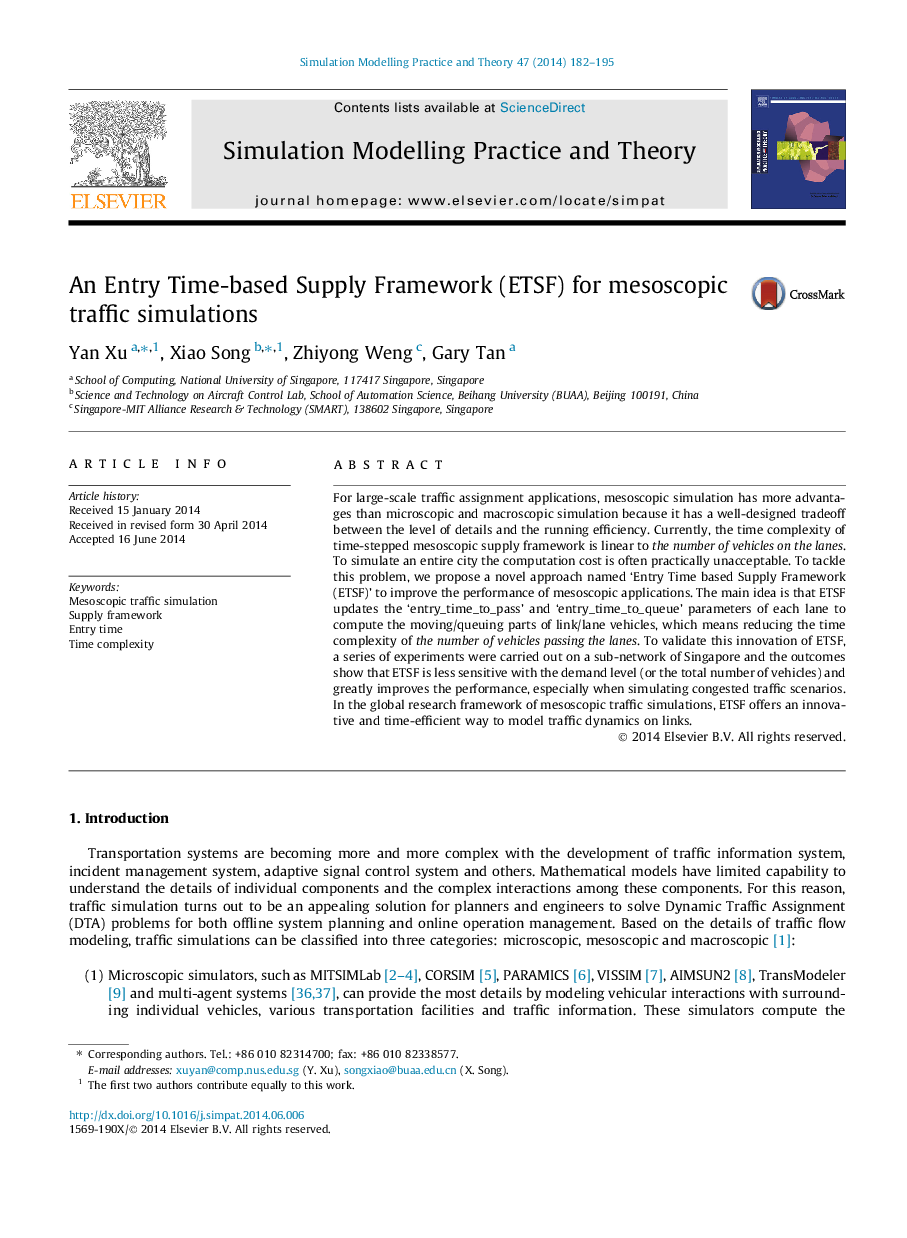| Article ID | Journal | Published Year | Pages | File Type |
|---|---|---|---|---|
| 6902937 | Simulation Modelling Practice and Theory | 2014 | 14 Pages |
Abstract
For large-scale traffic assignment applications, mesoscopic simulation has more advantages than microscopic and macroscopic simulation because it has a well-designed tradeoff between the level of details and the running efficiency. Currently, the time complexity of time-stepped mesoscopic supply framework is linear to the number of vehicles on the lanes. To simulate an entire city the computation cost is often practically unacceptable. To tackle this problem, we propose a novel approach named 'Entry Time based Supply Framework (ETSF)' to improve the performance of mesoscopic applications. The main idea is that ETSF updates the 'entry_time_to_pass' and 'entry_time_to_queue' parameters of each lane to compute the moving/queuing parts of link/lane vehicles, which means reducing the time complexity of the number of vehicles passing the lanes. To validate this innovation of ETSF, a series of experiments were carried out on a sub-network of Singapore and the outcomes show that ETSF is less sensitive with the demand level (or the total number of vehicles) and greatly improves the performance, especially when simulating congested traffic scenarios. In the global research framework of mesoscopic traffic simulations, ETSF offers an innovative and time-efficient way to model traffic dynamics on links.
Keywords
Related Topics
Physical Sciences and Engineering
Computer Science
Computer Science (General)
Authors
Yan Xu, Xiao Song, Zhiyong Weng, Gary Tan,
